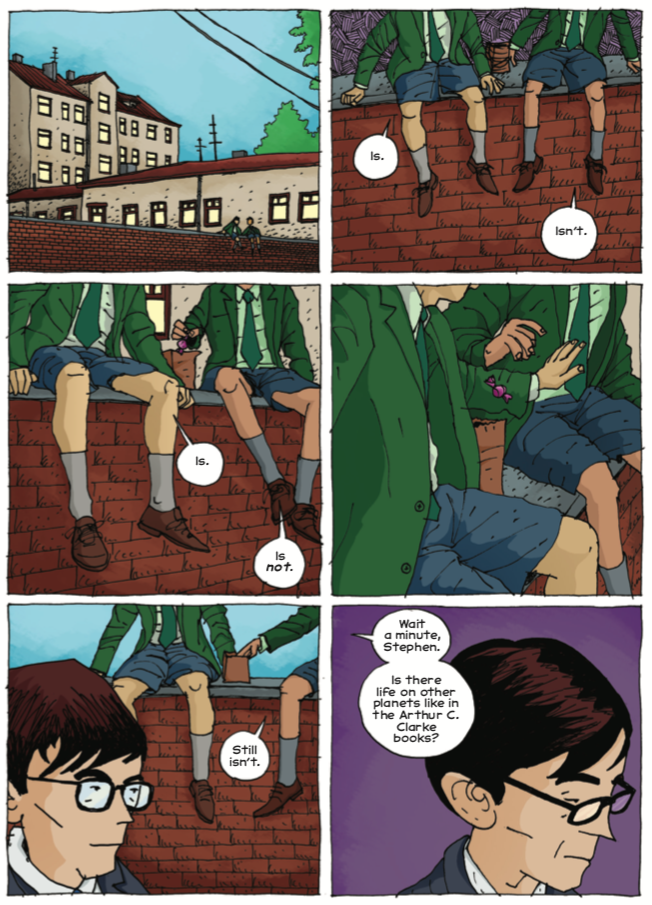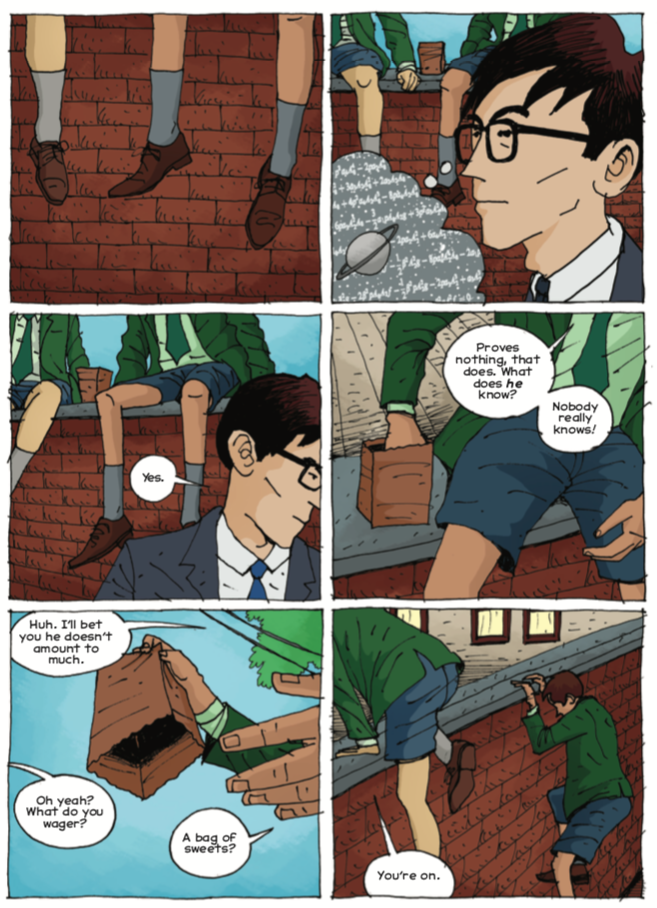[Since I have a new book coming out I’m thinking about reviews lately. Here’s a rejected review, commissioned based on my book Fallout, for which I was paid a generous kill fee. I wrote it long ago, while George W. Bush and Dick Cheney were still in office. It’s a great book, and though I wish it weren’t so, it’s still topical.]
From Russia, With…Pragmatism
“The blubbery arms of the soft life had Bond round the neck and they were slowly strangling him. He was a man of war and when, for a long period, there was no war, his spirit went into a decline. In his particular line of business, peace had reigned for nearly a year. And peace was killing him.”
The action in Ian Fleming’s fifth book about 007 opens in Russia and remains there for roughly its first third. Only when we reach the eleventh chapter (“The Soft Life”) do we see James Bond strangled by those blubbery arms, his spirit in decline, dying from peace.
Richard Rhodes’ latest book on nuclear weapons, Arsenals of Folly, also opens and remains in Russia for a long time and paints a similar picture of despair. And as with a good thriller, the apparent misdirection of initially focusing on the Chernobyl accident will make you wonder where he’s leading you. But just as readers from Kennedy to Reagan came to trust Ian Fleming to tie things together and deliver a thrilling and satisfying story, readers have come to trust Richard Rhodes to do the same when it comes to nuclear weapons. And he does.
The Making of the Atomic Bomb and Dark Sun: The Making of the Hydrogen Bomb began with scientists at work, and Arsenals of Folly follows suit. That’s where the similarities end, though, as Rhodes quickly moves from the disaster at Chernobyl — as seen through the disillusioned eyes of physicist Stanislav Shushkevich — to a detailed examination of Mikhail Gorbachev’s background and rise to power. Gorbachev ascends amidst a corrupted leadership and dual-use economy, where virtually every industry has to service both military and civilians, and where when push comes to shove, guns trump butter.
And shove always came. Ignoring warnings from doves like Eisenhower (“You can’t have this kind of war. There just aren’t enough bulldozers to scrape the bodies off the streets.”) and Churchill (“If you go on with this nuclear arms race, all you are going to do is make the rubble bounce.”), the fledgling U.S. neo-conservatives advising the executive branch promoted nuclear arms as useful deterrents and nuclear war as winnable. Richard Perle, Donald Rumsfeld, Dick Cheney, and Paul Wolfowitz all make early appearances. They and their agendas have been with us for decades, but were held somewhat in check by their presidential patrons; Nixon, Reagan, and the first Bush often ignored their advice. Cheney in particular is foiled by George H.W. Bush (via James Baker and Brent Scowcroft) in his efforts to undermine Gorbachev via his proposals for forcing regime change. Rhodes likens him to “the troll under the bridge, watching for billygoats,” and is clearly not a fan.
So as we move into the middle section of the book, the contrast with his previous books becomes particularly stark in that Rhodes shows us no great breakthroughs or discoveries in engineering or science, nor do we feel a sense of adventure, no matter how misguided. All we get is unenlightened self-interest and deception. And, though Rhodes’ subtitle at first seems a misnomer, when we reach this middle section he provides the appropriately depressing details of how the arms race was literally manufactured through the chicanery of the military-industrial complex players on both sides of the Bering Strait.
Rhodes makes the argument throughout that the Soviet Union wasn’t a real threat to the U.S. for technical reasons (even during Kennedy’s so-called missile gap the U.S. had better and more numerous weapons, and a greater capability to deliver them), and neither was a real threat to the other for practical reasons: neither side had a first strike policy, though each believed the other had.
So much for military intelligence, and the efficacy of real-life secret agents.
This section of the book closes with a chapter titled, “The Warheads Will Always Get Through,” which analyzes Ronald Reagan’s background and how it serves as a prelude to his meetings with Gorbachev. His evangelical fervor, his strong and unshakeable belief system, his willingness to ignore the science behind SDI, and his disinterest in details all imply a comparison to the current president Bush. However, Reagan’s genuine and visceral fear of nuclear weapons and their use provides for a sharp contrast with other presidents and Soviet leaders.
Rhodes does an excellent job of proving out Einstein’s quote “The release of atom power has changed everything except our way of thinking” in this middle section. After the heroic Gorbachev in the first part and the delusional policies and politics of the second, you’re primed and relieved to cheer on Reagan’s optimism and belief that the two leaders can put an end to the nuclear arms race.
So, the mood lifts in the eleventh chapter, which opens the third and final section of the book. Titled “Common Security,” it focuses on the negotiations between Reagan and Gorbachev at the end of the Cold War. Like many, including John Arqilla in The Reagan Imprint (reviewed by Mark Williams in the May/June 2006 issue of MIT’s Technology Review), I thought of its conclusion as mainly a demonstration by Reagan that U.S. Visa cards had a higher credit limit than their Soviet counterparts. But while it was about the economy, by this point in the book Rhodes has already made the case that the change had been a long time coming, and Gorbachev was already looking for a way out of the game.
Even with all the details and nuances of arms negotiations offered here, the book gets simpler: Gorbachev and Reagan. Geneva and Reykjavik. Testing SDI in the laboratory or in space. Both leaders realizing, in the words of J. Robert Oppenheimer, that the U.S. and U.S.S.R. were “two scorpions in a bottle, each capable of killing the other, but only at the risk of his own life.”
Reagan escaped these negotiations with his political life, despite the best pre-Geneva efforts of some of his advisors. (Though after Reykjavik, many changed their tune, at least temporarily.) George H.W. Bush did not, and neither did Gorbachev, an irony for Rhodes, who paints Gorbachev as heroic throughout; much more so than Reagan, calling SDI his “hubristic dream.” Further, according to Rhodes, Gorbachev was much more willing to share credit for ending the Cold War with the U.S. than Reagan or Bush, with the caveat that in sharing credit he also wanted the U.S. to share the blame for creating and promoting it.
Rhodes puts forth a convincing argument that Chernobyl is a pivotal event in all of this, and one of Gorbachev’s few failures in implementing the openness in public discussion about current and historical problems that characterized glasnost. In the process of canonizing Gorbachev, readers carried along by the narrative might forget the extent of the cover-up of this accident. But in the end, Chernobyl is Chekhov’s Gun, placed in the hands of Stanislav Shushkevich. Now president of Belarus, the man who lost faith in Gorbachev because of the way he handled the dissemination of information about Chernobyl becomes the one to deliver the news to Gorbachev that he, along with Leonid Kravchuk (president of Ukraine) and Boris Yeltsin have agreed to dissolve the Soviet Union. He does this only after Yeltsin has already told George H.W. Bush the news of Gorbachev’s ouster.
Fleming’s From Russia With Love ends with an unconscious Bond crashing to the floor, his triumph compromised by a last minute (though of course temporary) victory for the Soviet spy organization SMERSH. Rhodes ends his book by painting the end of the Cold War as an equally compromised victory, accusing the U.S. of “obstinately misreading the failure of our authoritarian counterpart on the other side of the world, to our shame and misfortune…”
It’s an emotional way to close, but appropriate. Facts and figures aren’t the point of this book.
On page 242, Rhodes explains Gorbachev’s and Reagan’s incorrect recollections of their first meeting at Reykjavik by noting that “[f]actual memory is more fallible than emotional memory.” I think the same will be true for readers of Arsenals of Folly; it certainly was for me. The book is dense with both fact and emotion, and in the end it’s the emotions that stick. (One of the few facts that stuck appeared near the end, where Rhodes quotes Carl Sagan’s calculation that the Cold War cost the U.S. $10 trillion–enough to buy everything we collectively own except for the land itself.) Bewilderment during the opening section, depression throughout the middle as both sides engage in “threat inflation”, and hope tinged with amazement and despair in conclusion. That’s what Rhodes makes us feel.
This is the third important book on nuclear weapons Rhodes has written in as many decades. I hope the one in the 2010s can be his last — not because he’s done writing, but because the problem is solved. Given that some of the bit part villains in Arsenals of Folly later found starring roles in the U.S. government, I look forward to Rhodes’ next book, but we may have to look to fiction for the safer world it deserves.



